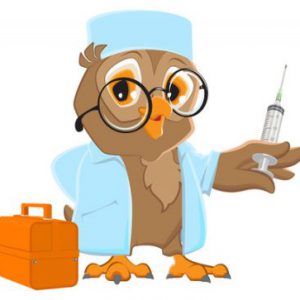

Conspiracies appear to help people reduce the complexity of reality and abate feelings of powerlessness and mistrust. “These include information overload and limited attention spans, various cognitive biases, the novelty of misinformation, trust, and algorithmic popularity.”Īnother factor fueling misinformation includes decreased trust in scientists and journalists. “ due to a complex mix of cognitive, social, and algorithmic biases,” the guide authors wrote. People can be surprisingly vulnerable to misinformation, especially in times of upheaval. According to the guide, misinformation is “false information that’s shared by people who don’t realize it is false and don’t mean any harm, including vaccine proponents.” This is in contrast to disinformation, which “is deliberately engineered and disseminated false information with malicious intent or to serve agendas.” The guide was created by a collaboration that includes UNICEF and the Yale Institute for Global Health. Vaccine-critical messaging increased more than twofold compared to pre-COVID-19 levels, with 4.5 billion views of content spreading vaccine misinformation in just the United States alone between March-July 2020.” 2 “Vaccines have been sucked into this vortex of confusing information, which ranges from the innocently misleading to the intentionally deceiving. “The novel SARS-CoV-2 virus has triggered two parallel pandemics: a biological one, which has spread to every country in the world, and a social pandemic of misinformation and disinformation - an ‘infodemic’ - spreading across social networks,” according to the guide.
May be misinformation undermine efforts immunize how to#
To fight this, public health agencies and academic partners have created a vaccine misinformation field guide outlining how to respond to the misinformation that is undermining uptake of the COVID-19 vaccines. “While concerns about long-term effects of vaccines are legitimate, it is important to be aware that the organized antivaccine industry has targeted this issue as a way to sow doubt and confusion about COVID-19 vaccines.” Looking at all vaccines, “when events occurred, the onset was within eight weeks of receipt of the vaccine,” CHOP officials noted. Here is what Children’s Hospital of Philadelphia (CHOP) said about projecting an adverse outcome for COVID-19 immunization into the future: “While the rules of science do not allow scientists to say that long-term effects can never happen, the evidence is strong that mRNA vaccines will not cause long-term harm.” 1 However, the anti-vaccine messages will no doubt continue, as there was a well-established movement against immunizations before the pandemic hit last year. I think it is because people are seeing all their friends and colleagues getting the vaccine and nothing happens.”

“I think over the last few months those numbers of social media posts are going down. “When the vaccines were first introduced, we saw a lot of disinformation about side effects - you are going to have this, you are going to have that,” Sanchez says. While there are rare infection breakthroughs with any vaccine, most COVID-19 vaccine recipients are not contracting the pandemic virus and are beyond any short-term side effects. We have to tell people to look for the answers yourself - don’t rely on somebody’s random media post.” Really, social media is the worst place to try and do that. It’s a balance though, because most of time these people don’t have enough knowledge or have enough background to have a good debate. “It’s really hard not to feel that obligation to defend each topic. “I’m on social medial as much as anybody and I see this misinformation,” he tells Hospital Employee Health. Someone recently tweeted the following, in an apparent effort to undermine the current national vaccination campaign: “If you’re still alive 10 years from now, you’ll hear commercials saying, ‘If you took the #CoronaVirus #COVID19 #vaccine Syringe between 2020-21, you may be entitled to compensation.’”ĭavid Sanchez, PhD, associate professor of pharmacy at Western University of Health Sciences in Pomona, CA, has been following such tweets, but recommends not getting into a point-counterpoint discussion with people on social media.


 0 kommentar(er)
0 kommentar(er)
